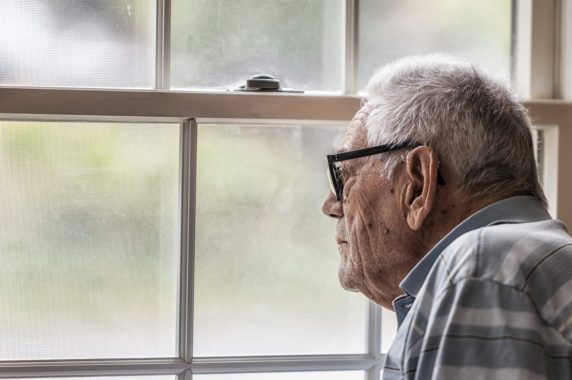The Covid-19 shielding programme cost several hundred million pounds and was hampered by lacking NHS IT, the National Audit Office has said.
However, it added that the Government has learned lessons and would do better if it had to repeat the exercise.
The NAO found problems in accessing healthcare data led to delays in clinically vulnerable people being added to the shielding list during the first wave of Covid-19.
The audit also found that expenditure on the programme up to 1 August 2020 was £308m.
This included a total of £200.2m spent on food box deliveries to people on the shielding list, £34.3m on the medicines delivery service and an estimated £54.4m spent by local authorities on basic care and other support to clinically extremely vulnerable people.
A further £18.4m was spent on a shielding contact centre, run by the Department for Work and Pensions, the NAO said.
Its analysis of the roll out of the shielding programme between March and August 2020 said hundreds of thousands of patients were added to the list weeks after the scheme was introduced because there was no way to do a ‘fast sweep’ to find eligible people.
Issues included hospital data being out of date and difficulties in extracting usable data from from different NHS and GP IT systems.
By 12 April 1.3 million people had been added to the list which meant they could access food box and medicines deliveries.
But it took almost another month – until the 7 May to find a further 900,000 who were eligible as GPs and hospital trusts went through records and used clinical judgement, the NAO said.
Other problems include that the shielding support contact centre had been unable to reach 375,000 patients because of missing or inaccurate telephone numbers in NHS records.
Charities had also told the NAO that the Government’s communications with people on the shielding list were not always clear.
The Department for Health and Social Care (DHSC) told the NAO they were confident that shielding has had a positive impact and was likely to have helped prevent deaths and serious illness but it is extremely difficult to separate that effect form general lockdown measures and individuals changing their behaviour.
The NAO recommended that DHSC should ensure there is easy, but secure, access to healthcare data, and that it sets out the key data needed for a future pandemic or civil emergency.
And that they should establish a robust plan on how to communicate clearly, quickly and consistently to ensure that people are clear if they need to shield, why they need to shield, how to shield and the support available to them.
Gareth Davies, head of the NAO said the shielding programme was an important response to support clinically extremely vulnerable, providing support to many of those most at risk from Covid-19, and delivered food to just over 500,000 people.
‘However, challenges pulling together data meant it took time to quickly identify those needing to shield, and therefore eligible for support. Government has learnt lessons from this programme and is better placed should this type of support be required again.’
Dr Farah Jameel, BMA GP committee executive team IT lead, said that drawing up the shielded patient list was a huge undertaking, not least by GPs who painstakingly reviewed records to ensure that their most vulnerable patients were included.
She said: ‘This took place during one of the most challenging periods of the pandemic, as primary care was forced to overhaul its way of working, keeping patients and staff safe. Yet doctors recognised that clinical input was vital in such a complex exercise.
‘Of course we know NHS IT is often outdated, slow, and suffers from a lack of interoperability and integration across the system, and the BMA has persistently pushed for solutions that are more streamlined yet secure for patient data with the right safeguards that respect patients’ confidentiality built in.’
Pulse October survey
Take our July 2025 survey to potentially win £1.000 worth of tokens













the shielding program was a shambles. There was complete confusion amongst patients and many patients were incorrectly categorised. As a GP I probably spent as much time trying to sort out the aftermath , as i would have done correctly identifying the high risk patients in the first place.
Agreed completely. GP could have been funded to produce the shielding lists + contact the patients at much more modest cost, and would have done a much better job. We spent weeks unpicking the mess completely unfunded.
When the public restart their frolicking, indifference and demands, make sure you engage your memory, and shield yourself when you get into work – don’t get professional amnesia.